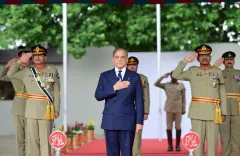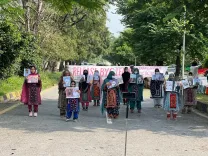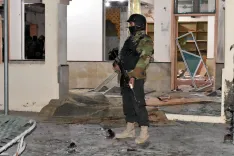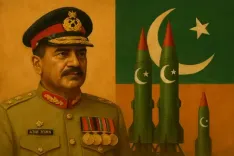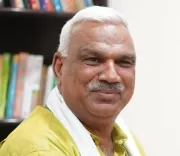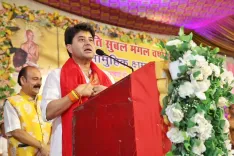Pakistan's Parliament Calls for Unity Against Terrorism, Criticizes PTI's Role
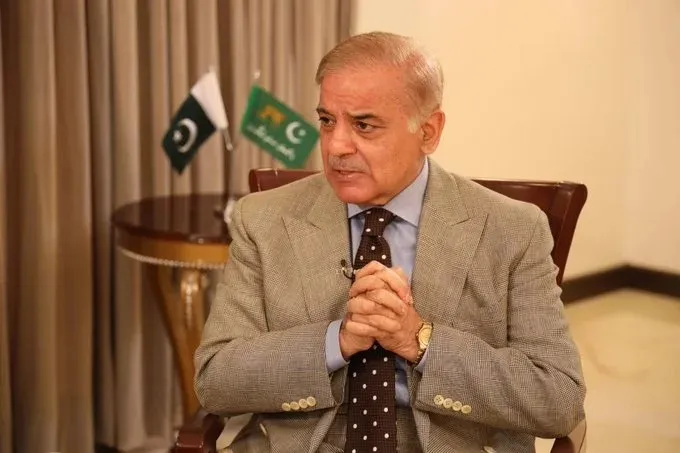
Synopsis
Key Takeaways
- Unified approach against terrorism emphasized.
- Support for military establishment reiterated.
- Concerns raised about social media misuse by terrorists.
- Call for national consensus on counter-terrorism.
- Diplomatic outreach planned to address security challenges.
Islamabad, March 18 (NationPress) A pivotal day-long, in-camera session of Pakistan's Parliamentary Committee on National Security (PCNS) on Tuesday pledged to eradicate terror elements with utmost determination and made significant decisions to combat the threat of terrorism within the nation. The meeting, which included top civil and military officials, issued a statement denouncing terrorism in all its manifestations.
The committee underscored the necessity for a cohesive political and strategic framework, advocating for a national consensus on efforts to fight terrorism. It appealed to all stakeholders for the swift and immediate execution of the National Action Plan (NAP) and the Azm-e-Istehkam strategy as integral components of the national counter-terrorism architecture aimed at dismantling terror networks, disrupting their logistical support, and severing connections between terrorism and organized crime.
The committee reiterated its unwavering support for the military establishment and the armed forces of Pakistan, recognizing their sacrifices and commitment to national security. It also raised serious concerns regarding the alleged misuse of social media platforms by terrorists and their sympathizers to disseminate anti-state propaganda, which, according to the committee, is also utilized for recruitment and coordinating attacks.
The committee emphasized and cautioned that no group, individual, or institution collaborating with anti-state terror factions would be permitted to undermine the country's stability and unity.
The members were briefed on the nation's security landscape by Chief of Army Staff General Syed Asim Munir.
Consensus was reached that Pakistan would leverage its diplomatic efforts to engage with regional and global leaders, sharing the security challenges it faces concerning terrorism. The committee pledged to utilize all resources and means necessary to counter the proliferation of anti-state activities in Pakistan, which they asserted were emanating from Afghanistan and its support for extremist militant groups such as the Tehreek-e-Taliban Pakistan (TTP) and the Baloch Liberation Army (BLA).
During the in-camera meeting, the military establishment provided an extensive briefing on the security situation in the violence-affected provinces of Khyber Pakhtunkhwa (KP) and Balochistan, including insights into ongoing counter-terrorism operations.
Notably, the session was boycotted by the opposition party Pakistan Tehreek-e-Insaf (PTI), which opposed any decision regarding another military operation in the country. The absence of the PTI was condemned by Prime Minister Shehbaz Sharif and Defence Minister Khawaja Asif.
Sharif criticized the former Imran Khan administration for allowing thousands of TTP militants into the country and for releasing hundreds of militants from Pakistani prisons. He remarked that the National Action Plan (NAP), which was introduced as the nation’s firm resolve against terrorism, was disregarded during Khan's tenure, leading to fresh security challenges resulting from the former PM's negligence.
"It is due to the catastrophic decisions of the previous government that we confront this challenging situation today. It is time for us to identify those responsible for undermining Pakistan's national interests," stated Sharif.
Former Pakistani Foreign Minister Bilawal Bhutto Zardari also stressed the need to re-evaluate the country's foreign policy and use it to engage the global community about the terrorism radiating from Afghanistan.
Bhutto criticized Afghanistan for becoming what he described as the epicenter of terrorism.
"Afghanistan has transformed into the epicenter of terrorism. Terrorism is being sponsored, supported, facilitated, and harbored, and is spreading into Pakistan from Afghanistan," he asserted.
Experts believe that the forthcoming days may be crucial as Pakistan openly endorses the military establishment and law enforcement agencies to utilize all necessary measures against terrorists instigating unrest in the country.
It is anticipated that cross-border counter-terrorism operations in Afghanistan may also receive approval.

